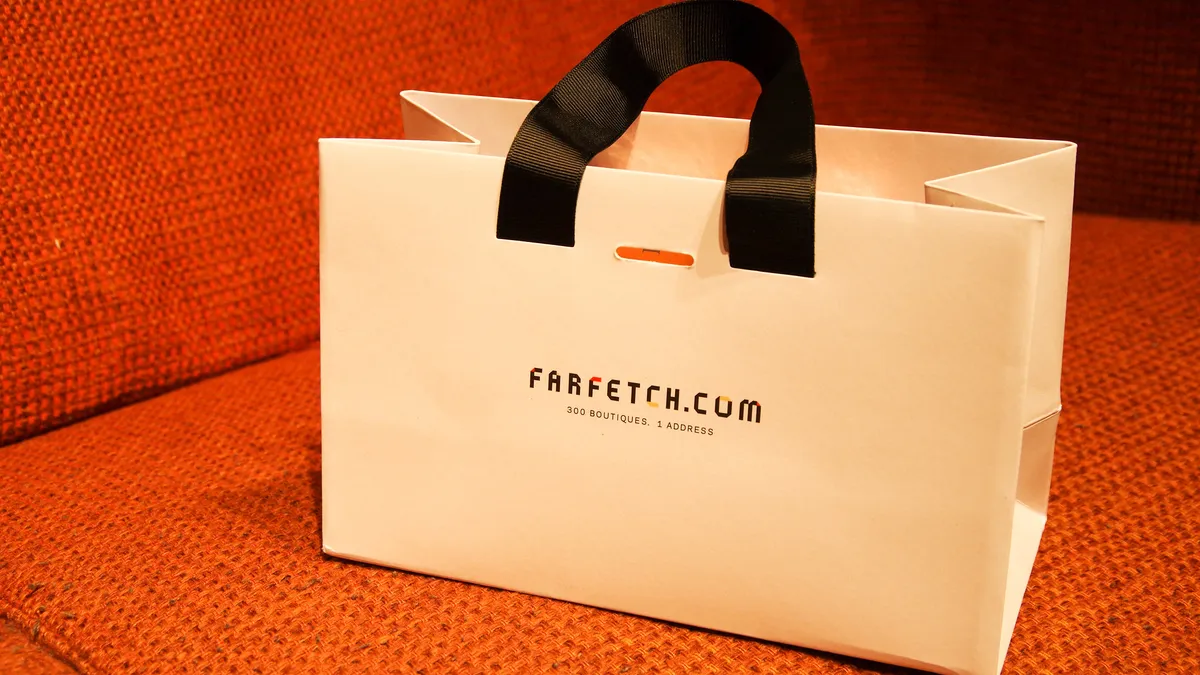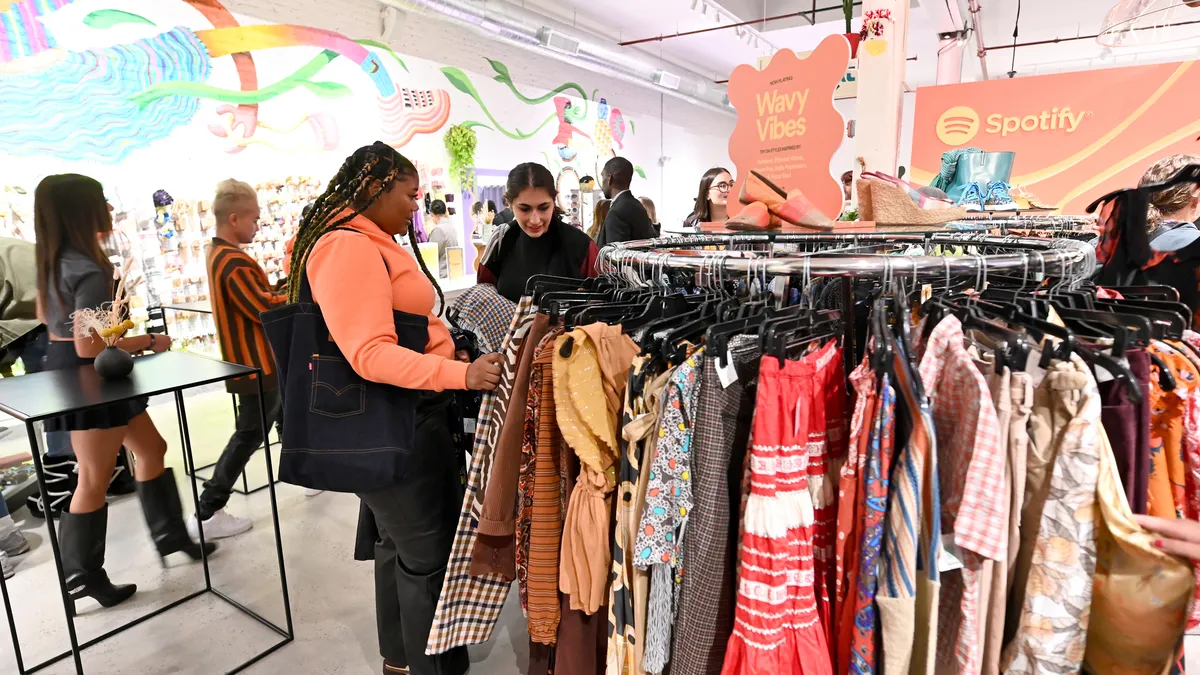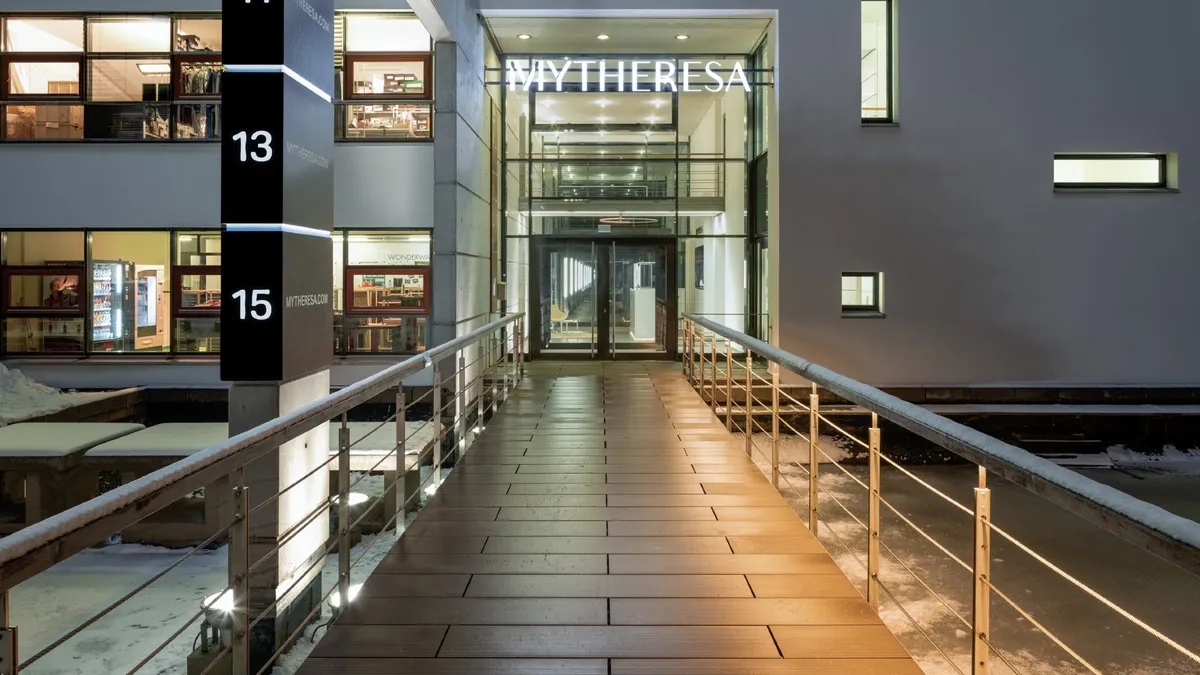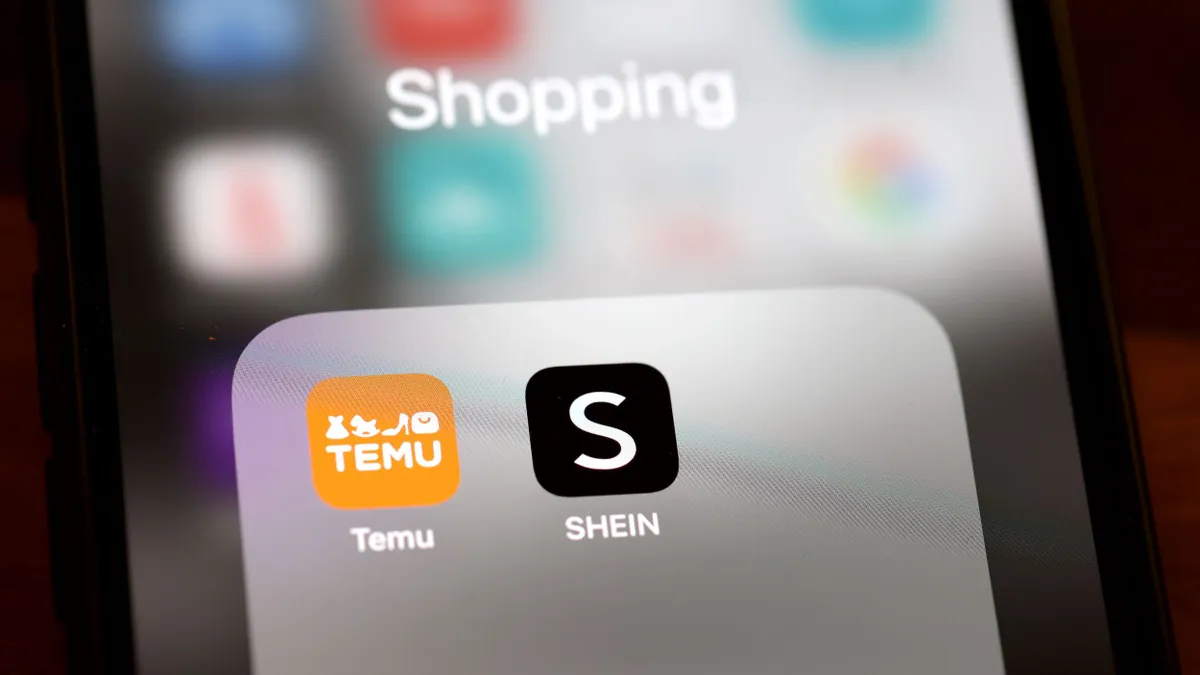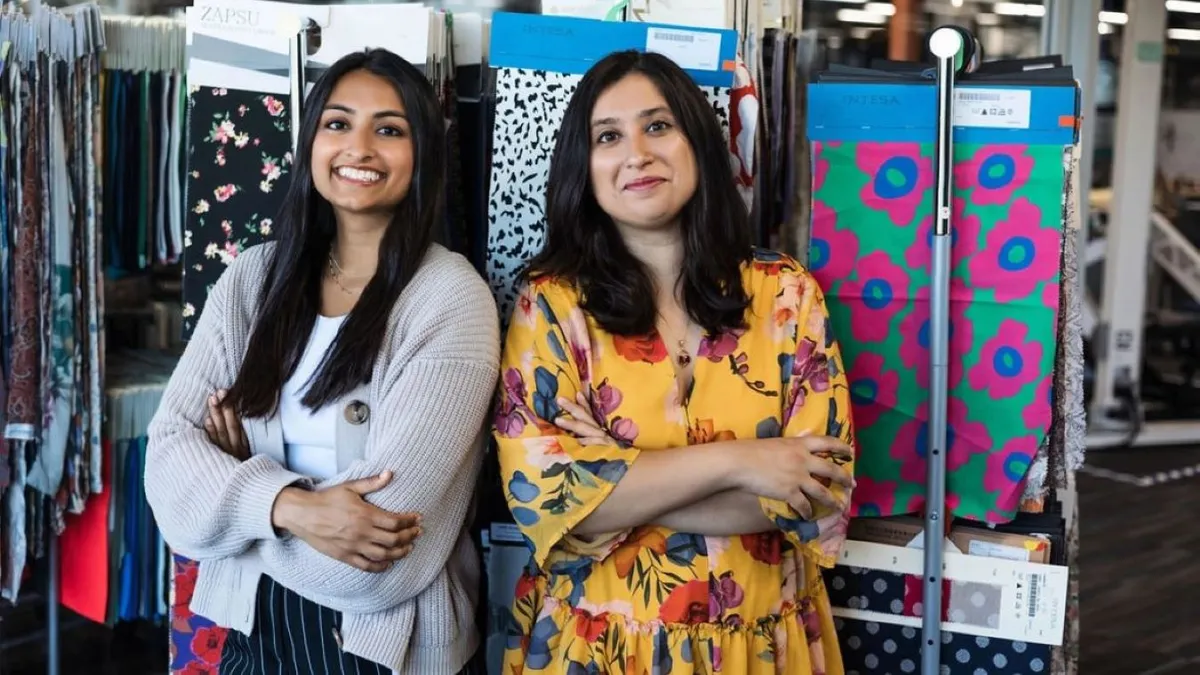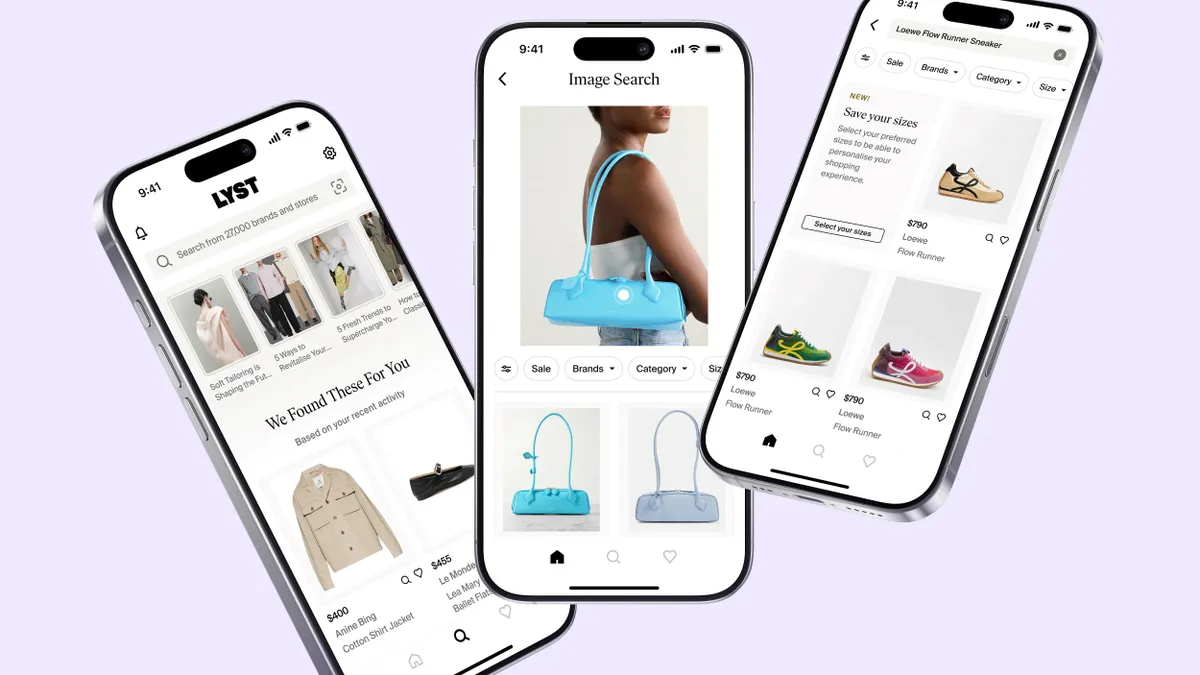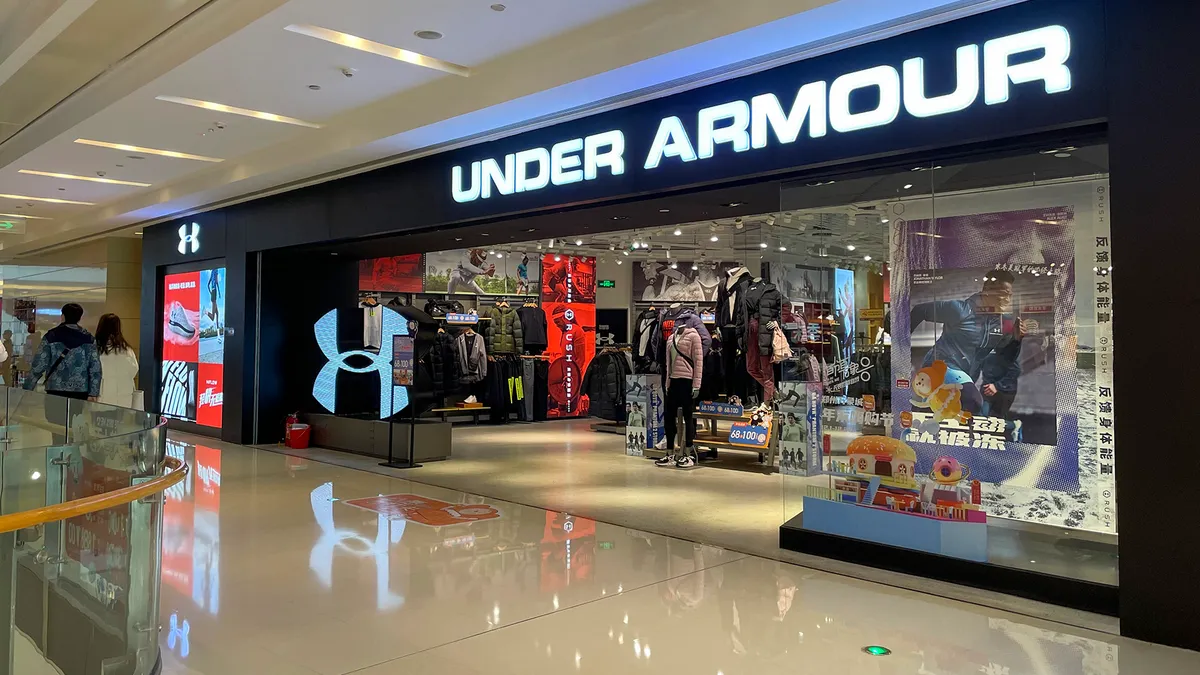The news of Monday's deal between luxury e-commerce platform Farfetch and Coupang, a company Fortune dubbed the “Amazon of Asia,” made it clear that there could be far-reaching implications for the firms, their shareholders, Compagnie Financière Richemont, and for the e-commerce landscape as a whole.
“The Coupang-Farfetch deal is more than a financial rescue; it's a strategic shift of the e-commerce and luxury retail landscape, unifying digital agility, logistical speed, with luxury exclusivity,” Benjamin Bond, principal in the consumer practice of Kearney, said in an email to Fashion Dive.
At the moment, there are still some moving pieces because the deal is still in progress, as outlined by Wedbush analysts led by Tom Nikic. Currently, the agreement consists of a $500M bridge loan and a transaction support agreement which will provide funding for approximately 80% of Farfetch's $600M in outstanding term loans. Additionally, it “provides for an exclusivity period through April 30, 2024, and if [Farfetch] finds a better deal elsewhere, they will have to pay a breakup fee of $20 million,” Nikic and his team said in emailed comments.
If the deal goes through, Farfetch said in a Monday release it expects “holders of its Class A and B ordinary shares and its convertible notes will not recover any of their outstanding investments.” The company also said it expects “to be delisted from the NYSE and to be liquidated” at that time.
Nikic said that although this deal wipes out the company’s equity, it will help Farfetch cover its debt, which is about $1.6 billion.
“FTCH announced that a debt deal…will keep the company operating,” he said, although he added that “while they have a lot of debt (~$1.6 billion face value), much of it is long-dated (maturities in 2027 and 2030) and they had over $450 million of cash. So, it is quite shocking that their financial condition could deteriorate so quickly.”
Due to its loss of equity, Nikic said Wedbush was “lowering our price target to $0 (since that's what's implied by the deal)” and that they would “re-assess if FTCH is able to find a competing transaction that does not wipe out the equity of the business.”
Following the Coupang announcement, Richemont terminated a deal that would have seen Farfetch acquire a 47.5% stake in its Yoox Net-a-Porter platform.
That deal, first announced in August 2022, was reliant on Farfetch common shares, said Nikic, but that was no longer an option because “the asset [Farfetch was] going to use to pay for the acquisition - FTCH common shares - will essentially be worthless when the deal is finalized.”
Richemont also said that YNAP had not yet adopted its planned implementation of Farfetch Platform Solutions.
Nonetheless, there are additional aspects to consider as this deal develops, according to Alice Price, apparel analyst at GlobalData.
“Coupang's rescue deal of Farfetch for $500m, after it was once valued in the region of £20bn, is a culmination of several factors, the first being its position as an online pureplay, as luxury consumers prefer to see and try on products instore due to their hefty price tags,” Price said in emailed comments. “As a third-party retailer, Farfetch has also been impacted by luxury brands reducing their reliance on wholesalers, as they strive to obtain greater control over their brand images and inventories by focusing investments in their direct-to-consumer channels.”
Bond added that Coupang's backing may help poise Farfetch for a turnaround by offering it a chance to “stabilize, diversify, and pursue profitable growth amidst challenging market conditions.” Yet he cautioned that this was still a developing situation. “The initial investor skepticism reflected in Coupang’s stock price drop post-announcement is an important indicator of market confidence as integration progresses,” said Bond.
Price noted, too, that the recent luxury market slowdown has “no doubt been the nail in the coffin for Farfetch” as even companies including LVMH and Prada, “which were previous outperformers,” are seeing decelerating sales.
“This is due to aspirational shoppers in the US and Europe reigning in non-essential spend, as high inflation inhibits their discretionary incomes and the savings they accrued during the pandemic begin to run out,” said Price. “The downturn in the tech industry will have also impacted the performance of Farfetch's Platform Solutions division, with the retailer offering its e-commerce services to the likes of Harrods, Ferragamo and Balenciaga.”
That’s where Coupang may be able to help, said Price. The company has “exceptional online and technological expertise” which make it “well placed to steer…troubled retailer [Farfetch] back to growth.” Meanwhile, Price added, Coupang’s strong presence in Asia “lends Farfetch the opportunity to tap into the region’s booming luxury market. Asia’s strong economy and growing middle class populations will enable the luxury online pureplay to turn its attention away from the struggling regions of the US and Europe and showcase its proposition to a more receptive consumer base.”
Bond said that the partnership is a turning point for Farfetch, and offers the company “a chance to refocus on profitability and sustainable growth while capitalizing on synergies to streamline operations.” However, he cautioned that the success of this merger “hinges on effectively blending Farfetch’s luxury identity with Coupang’s larger infrastructure, a delicate balance of culture and operation. Maintaining strong relationships with luxury brands and consumers, while adapting to new dynamics under Coupang's umbrella is imperative.”



